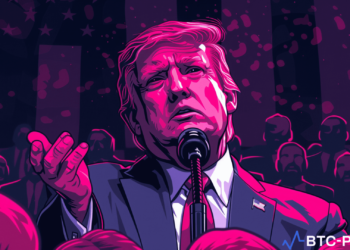In recent years, the crypto space has experienced tremendous growth, with the majority of its centralized organizations establishing a base in the United States. However, the success of the crypto industry has been limited by a series of regulatory challenges that have put significant pressure on the industry, with Ripple (XRP) being at the forefront of this regulatory crackdown.
By far the best chance for cryptocurrency in the United States is Ripple.
There are other crypto players in the US that could be playing offense, but aren't.
This means it's basically all on $XRP to save us all.
— LBRY 🚀 (@LBRYcom) February 28, 2023
The Securities and Exchange Commission (SEC) has become increasingly aggressive in its approach to cryptocurrencies, especially Ripple. The SEC has filed several lawsuits against Ripple, alleging that it sold XRP tokens as unregistered securities, thereby violating federal securities laws. These lawsuits have significant implications for the crypto industry and may be the last straw for many crypto enthusiasts in the United States.
Ripple (XRP) was created to provide a fast, efficient, and inexpensive way to transfer money globally. It was designed to provide a bridge between traditional finance and the new world of cryptocurrencies. However, the SEC’s lawsuit against Ripple has thrown this into disarray.
The lawsuit against Ripple is not the only regulatory challenge that the crypto industry is facing, as many other companies have been aggressively targeted by the SEC, including LBRY, a blockchain-based content platform that has been fighting back against the SEC’s allegations that Ripple was selling unregistered securities.
LBRY is a decentralized content platform that allows users to publish and share blockchain content using its utility token, LBC. However, the SEC has accused LBRY of selling unregistered securities, which LBRY vehemently denies. LBRY has pushed back against the SEC, arguing that its tokens are not securities and that the SEC is overstepping its authority. The case is ongoing, but it has significant implications for the crypto industry as a whole.
The SEC’s aggressive approach to the crypto industry is not entirely unexpected. The crypto market has been growing rapidly, and this growth has attracted the attention of regulators worldwide. However, the SEC’s actions against Ripple and LBRYLB suggest that the agency may be overreaching and attempting to stifle innovation in the crypto space.
Moreover, the regulatory uncertainty created by the SEC’s actions could have a chilling effect on the industry. Startups and entrepreneurs may be less likely to enter the market if they believe that the regulatory environment in crypto is hostile. This could have negative implications for innovation and economic growth, especially in the United States.
The crypto industry is not without its problems, and there have been cases of fraud and abuse. However, crypto is also a source of innovation and economic growth, and it is essential that regulators strike a balance between protecting investors without stifling innovation.










